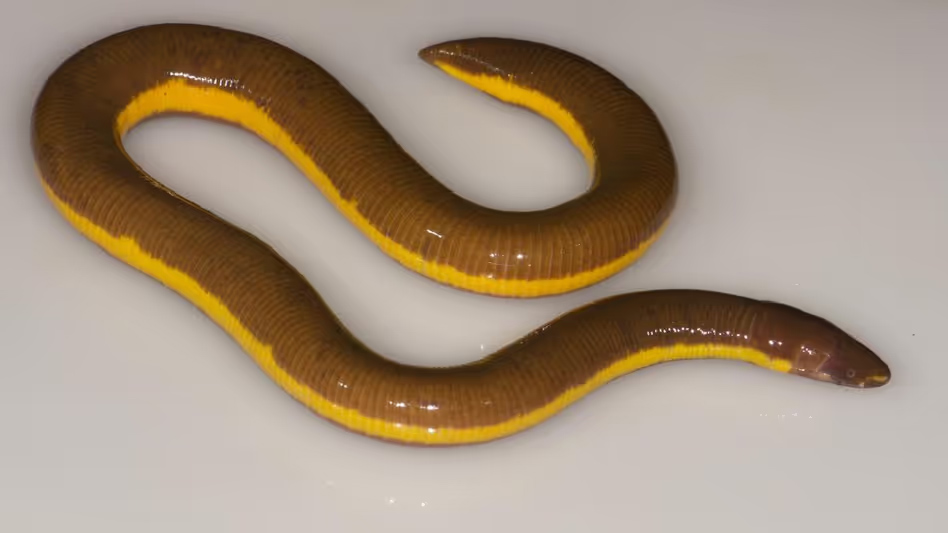This discovery was made during a departmental survey of amphibians and reptiles, conducted from June 14 to June 17
 KRC TIMES Assam Bureau
KRC TIMES Assam Bureau

Kaziranga : In a groundbreaking discovery, a new species of striped caecilian has been found in Kaziranga National Park. This discovery was made during a departmental survey of amphibians and reptiles, conducted from June 14 to June 17.
Kaziranga National Park, renowned for its diverse wildlife, resonated with the calls of frogs as the monsoon season commenced. During this period, a focused survey on amphibians and reptiles like lizards took place, leading to the recording of the Striped Caecilian (Ichthyophis spp) for the first time in the park.
Caecilians, limbless amphibians, typically spend most of their lives underground or in water bodies, making this discovery significant. Kaziranga’s vast expanse of 1,307 square kilometers, featuring a mix of floodplains, wetlands, grasslands, and hilly terrains, provides an ideal habitat for a variety of amphibians and reptiles.
The survey was a collaborative effort involving experts such as Dr. Saibal Sengupta of Assam Don Bosco University, Dr. Abhijit Das of the Wildlife Institute of India, Dr. Rajeev Basumatary and Dr. Samrat Sengupta of DR College, Golaghat, Dr. Jayadev Mondal of Madhav Choudhury College, Barpeta, and Dr. Jayaditya Purkayastha, a specialist from Help Earth.
In addition to identifying this new species, the survey included training sessions aimed at enhancing the skills and knowledge of forest staff in identifying and conserving amphibians. This initiative is part of a broader effort to ensure better management and protection of these crucial species.
Kaziranga has a history of significant wildlife discoveries. Last year, the park recorded the presence of species such as the long-tailed Nigni, Binturong, and small-clawed otters for the first time. This latest finding adds to the park’s rich biodiversity, highlighting its importance as a haven for wildlife.



